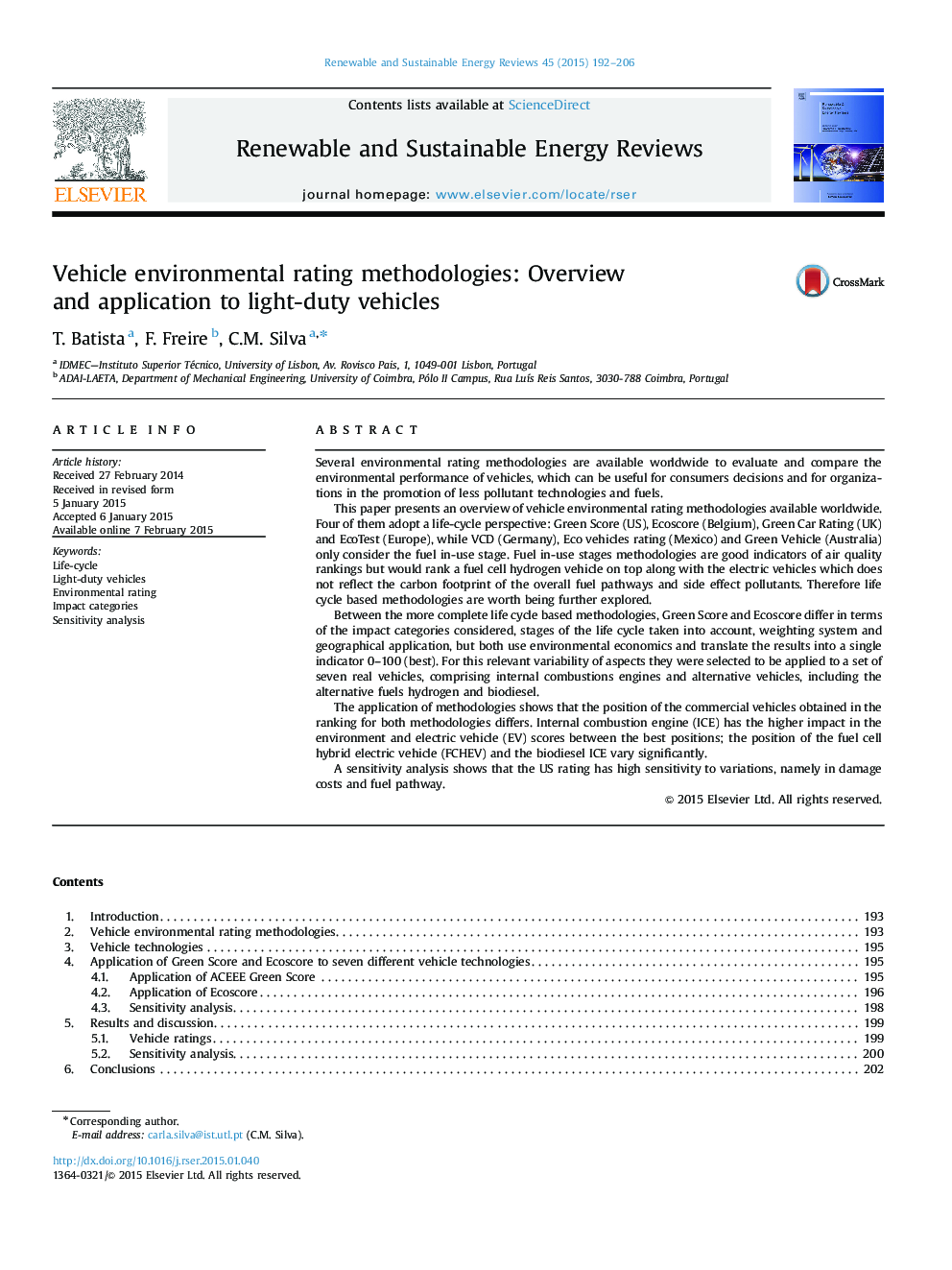| Article ID | Journal | Published Year | Pages | File Type |
|---|---|---|---|---|
| 1750041 | Renewable and Sustainable Energy Reviews | 2015 | 15 Pages |
Several environmental rating methodologies are available worldwide to evaluate and compare the environmental performance of vehicles, which can be useful for consumers decisions and for organizations in the promotion of less pollutant technologies and fuels.This paper presents an overview of vehicle environmental rating methodologies available worldwide. Four of them adopt a life-cycle perspective: Green Score (US), Ecoscore (Belgium), Green Car Rating (UK) and EcoTest (Europe), while VCD (Germany), Eco vehicles rating (Mexico) and Green Vehicle (Australia) only consider the fuel in-use stage. Fuel in-use stages methodologies are good indicators of air quality rankings but would rank a fuel cell hydrogen vehicle on top along with the electric vehicles which does not reflect the carbon footprint of the overall fuel pathways and side effect pollutants. Therefore life cycle based methodologies are worth being further explored.Between the more complete life cycle based methodologies, Green Score and Ecoscore differ in terms of the impact categories considered, stages of the life cycle taken into account, weighting system and geographical application, but both use environmental economics and translate the results into a single indicator 0–100 (best). For this relevant variability of aspects they were selected to be applied to a set of seven real vehicles, comprising internal combustions engines and alternative vehicles, including the alternative fuels hydrogen and biodiesel.The application of methodologies shows that the position of the commercial vehicles obtained in the ranking for both methodologies differs. Internal combustion engine (ICE) has the higher impact in the environment and electric vehicle (EV) scores between the best positions; the position of the fuel cell hybrid electric vehicle (FCHEV) and the biodiesel ICE vary significantly.A sensitivity analysis shows that the US rating has high sensitivity to variations, namely in damage costs and fuel pathway.
